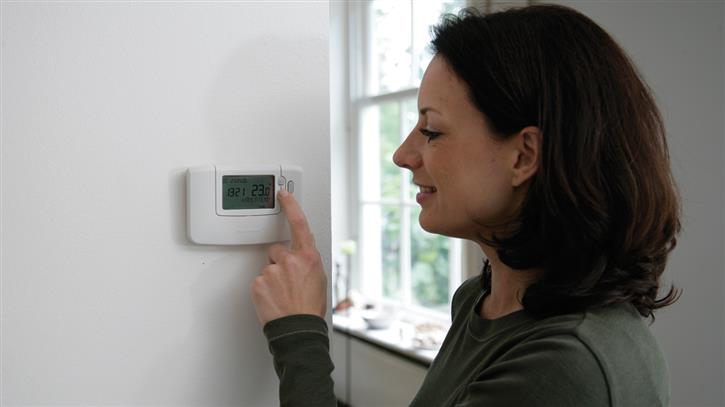


Richard Harvey, Category Director for Heating, Parts, Pumps, and Controls at Wolseley, details ways in which installers can help support customers on lower incomes to manage energy efficiency on a budget.
With cold snaps and extreme weather more common in recent years, there is an increased focus on making heating as efficient as possible – both for environmental and financial reasons.
For those living in fuel poverty, every purchase can be a struggle to afford. Low incomes, combined with high energy bills, can make a warm home unaffordable for many people living across the UK, and those with outstanding debts often excluded from signing up to cheaper energy deals. As a result, many households are left with poorly heated homes. However, there are several ways installers can help support customers on lower incomes to manage energy efficiency on a budget.
Room thermostats
Over half of the money spent on fuel bills goes towards heating and hot water. By installing a room thermostat, installers could save customers around £150 per year. Combining a programmer and thermostatic radiator valves with a room thermostat could save customers an additional £75 a year, just by turning down a room thermostat by one degree.
Using the right controls – no matter the age of the boiler – will allow customers to set their heating and hot water to kick in when they need them to, as well as heat specific rooms in the home so that energy isn’t wasted on unoccupied areas.
Smart meters
Dubbed the next generation of gas and electricity meters, smart meters can help customers keep track of their energy consumption across the home – also removing the need for any meter readings. Unlike traditional gas and electricity meters, which can estimate bills after energy use, smart meters highlight when energy has been used and exactly how much it costs in real time.
This allows customers to adapt the way they use energy to cut down on any waste, and therefore reduce overall energy bills. By 2020, every homeowner across Britain will be offered smart meters for both electricity and gas.
Smart controls
Smart controls continue to be introduced to homes across the UK to help with controlling heating, as well as understanding energy use. Through the use of smart controls, customers are able to manage their heating remotely, giving them complete control no matter where they are.
Additional benefits include the ability to remember how energy is used across the home, which can then be used to automatically set up heating preferences. Many tradespeople are already discussing the benefits with their customers and are recommending the best control to suit their individual needs.
While all of these products will help support customers who are looking to improve their energy efficiency at an affordable price, tradespeople shouldn’t forget to consider the latest legislation, as this can dictate what you can and can’t install.
Take Boiler Plus, for example, introduced by the Department for Business, Energy & Industrial Strategy earlier this year. This legislation requires installers to follow modified requirements surrounding the manufacture and installation of oil and gas boilers within the UK.
Every person, whether they are a homeowner, tenant, student, or living with parents has a responsibility for our energy consumption. Living in a cold home is avoidable and, by raising awareness of the way’s energy efficiency can be improved, we can work together to reduce the number of cold-related deaths.
If you'd like to keep up-to-date with the latest developments in the heating and plumbing industry, why not subscribe to our weekly newsletters? Just click the button below and you can ensure all the latest industry news and new product information lands in your inbox every week.